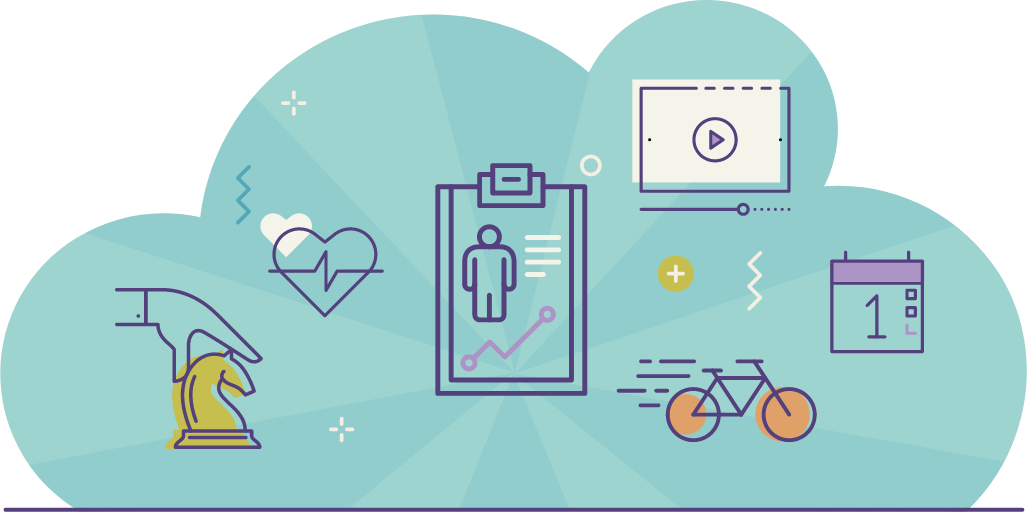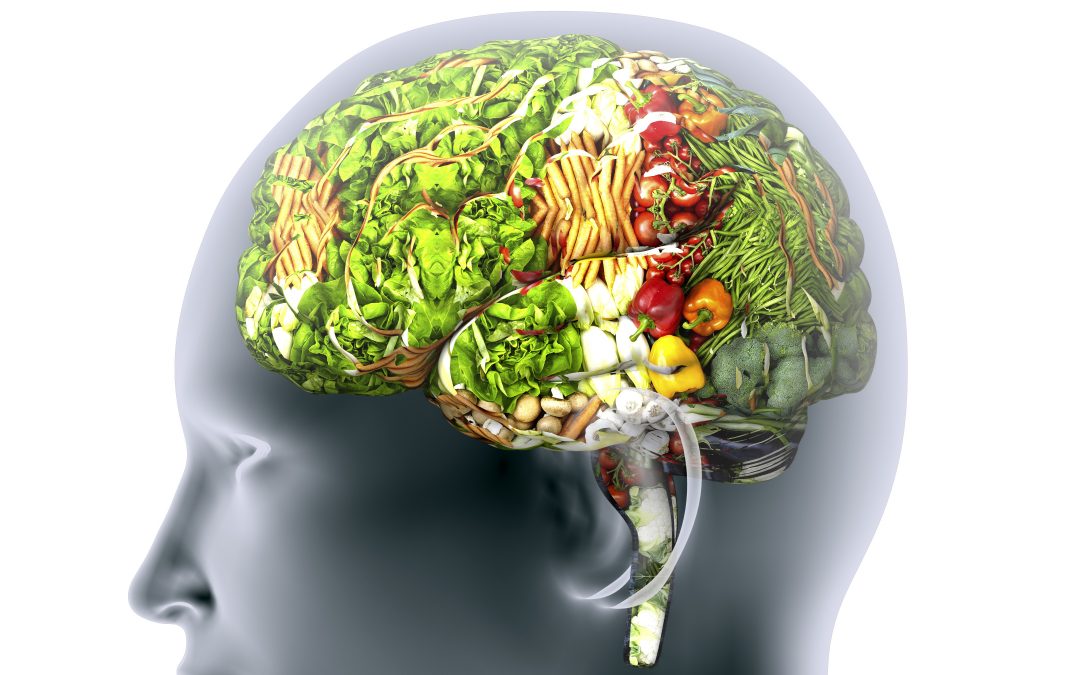By Heather Kelly and Angela Steel
In preparation for World Mental Health Day our Founder, Angela Steel sat down with Mental Health Consultant, Heather Kelly to discuss their thoughts on one of the most ground-breaking and exciting research developments today: nutrition and mental health.
Tomorrow marks 26 years since the World Federation for Mental Health first launched World Mental Health Day. Aimed at education, awareness and advocacy against social stigma around mental health, WMHD is now recognised in over 150 countries. The theme for this year is suicide prevention. It’s estimated that 800,000 people worldwide commit suicide each year, about 60 percent of which will have suffered from a mood disorder, such as depression or bipolar disorder.
According to the World Health Organisation, an estimated 264 million people suffer from depression across the globe, with it being one of the leading causes of disability. A recent WHO-led study estimates that depression and anxiety disorders cost the global economy US$ 1 trillion each year in lost productivity.
1 in 4 people in a workplace will be experiencing a mental health problem at any given time, resulting in the need for mental health support at work, with depression and anxiety being the most common diagnoses. As we’re seeing these stats reported more regularly in the media, we’re also seeing staff mental health make it into boardroom conversations. As a result, each World Mental Health Day the UK is seeing more employers prioritise investment in the wellbeing of staff. As the incidences of suicide are on the rise globally (according to the WHO), this is also a critical topic which is starting to be addressed more widely in workplaces.
Building a sound strategy that effectively provides mental health support and addresses suicide prevention is key to ensuring a healthy and productive workforce. But when we’re talking prevention, especially when it comes to common mental health problems, what are some of the things that will make the biggest difference?
At SuperWellness, our focus with clients is exclusively on health prevention through corporate nutrition programmes. And we believe that if implemented well, nutrition will make a measurable difference to both the physical and mental health of workers-and do so rapidly. So, what is the research saying about the role of nutrition and mental health?
Angela: Of course, there isn’t a silver bullet ingredient or food which will definitely reduce or prevent symptoms of common mental health conditions, like depression or anxiety, but by bolstering the overall quality of our diet and healthy eating habits we certainly stand a good chance of making a difference.
There is evidence for a wide range of nutrients playing a role in mood and helping to alleviate symptoms of depression specifically. Only this year research was published showing that Vitamin D supplementation may have a favourable impact [1]. We often recommend Vitamin D testing as part of a corporate health check programme since deficiencies are extremely common and easy to correct, with many health risks being reduced as a result. When it comes to depression, there’s a long list of further nutrients, from omega 3 fatty acids contained in oily fish and seeds to zinc (meat, wholegrains and seafood), selenium (Brazil nuts, meat, fish) and B vitamins (eggs, fish, wholegrains among others), which play an important part in maintaining a healthy nervous system.
Heather: I’ve been closely following the fascinating research which has been coming out recently on the gut microbiome. In fact, Nature published an editorial earlier this year describing the links between our gut microbes and depression [2], stating that when certain gut bacteria are absent in a person’s intestinal system they’re more prone to depression. The concept of there being a direct gut and emotional wellbeing connection in the human body would have seemed pretty far-fetched even five years ago, right? Even If the research is still in its infancy, the idea of people experiencing depression having an alternative to anti-depressants to manage their symptoms is brilliant. The side effects of all those meds are pretty rotten.
Angela: Excellent point! Eating delicious food would certainly be a more manageable prescription for many people. What we know is still very limited but it seems that our gut bacteria may have an influence on our neurotransmitters, such as serotonin and dopamine, which influence our mood. What this could mean in terms of our diet, nutrition and mental health? Including a good variety of probiotic foods would be a good idea – a dollop of sauerkraut or other fermented pickles here and there, good quality natural yogurt, not forgetting the prebiotics which help the bacteria to thrive. This means having good amounts of fibre rich foods, especially (and rather seasonally) leeks, Jerusalem artichokes, onions and garlic among many others.
Heather: I think it’s important to mention the things we eat and drink which are not so helpful when it comes to preventing depression. How does SuperWellness approach this tricky subject in workplaces?
Angela: Yes, unfortunately there are certain clear links that can’t be ignored.. We always recommend concentrating first on ‘adding’ the good things into the diet, which, let’s face it, is more motivating that cutting out some of our favourite foods or drinks. But yes, once a person is ready, there are huge benefits to be gained from cutting down on alcohol, which is a known depressant. Top of the ‘avoid’ list food-wise, would be highly processed and high sugar content foods such as crisps and chocolate bars, but also certain foods marketed as healthy but deceptively high in sugar (such as certain cereals and cereal bars). The problem with these is the ‘empty calories’ which play havoc with our blood sugars and don’t contribute the nutrients which are essential for good mental health [3].
Heather: Making these changes is a step by step process but given that we spend so much of our time at work, there’s an opportunity here for employers to support people in preventing and reducing symptoms of common mental health problems, like anxiety and depression. And in the more extreme circumstances to support staff who might be experiencing suicidal thoughts. This can be approached successfully through building mental health and suicide prevention awareness and through training programmes. But based on the recent research, it’s becoming more evident that the role nutrition and mental health play is an important factor which can make a significant difference to staff wellbeing and employers should seriously consider educating their people about..
Angela: Yes, nutrition and mental health education and support to introduce behavioural changes can be a very effective approach, especially for those who struggle to speak openly about their mental health. We’ve seen quantified improvements on our Challenge programme, with for example participants from a client in the City showing a 75% improvement on anxiety levels according to Public Health England’s standard questionnaire. There’s huge potential to make a difference across so many workplaces. We’ve made it our mission to build awareness among employers of the role of nutrition in mental health and the difference it makes to the lives of employees when nutrition forms an integral part of a workplace mental wellbeing strategy.
Read more about the importance of nutrition and mental health in this previous interview with Heather Kelly
Interested in working with Heather and integrating nutrition within your mental health strategy? Read about our programmes and mental health consultancy package here or get in touch for a chat: info@superwellness.co.uk
References
[1] Velleklatt F et al, Efficacy of vitamin D supplementation in major depression: A meta-analysis of randomized controlled trials, J Postgrad Med, Apr-Jun 2019; 65(2): 74–80. DOI: 10.4103/jpgm_571_17https://www.ncbi.nlm.nih.gov/pmc/articles/PMC6515787/
[2] Links between gut microbes and depression strengthened, Nature, 04th February 2019. https://www.nature.com/articles/d41586-019-00483-5 [3] Sorayani M, Healthy and Unhealthy Dietary Patterns Are Related to Depression: A Case-Control Study, Psychiatry Investig., 2015 Oct; 12(4): 434–442.Published online 2015 Sep 30. doi: 10.4306/pi.2015.12.4.434
https://www.ncbi.nlm.nih.gov/pmc/articles/PMC4620299/
https://en.m.wikipedia.org/wiki/World_Mental_Health_Day





















